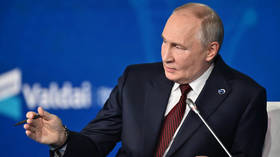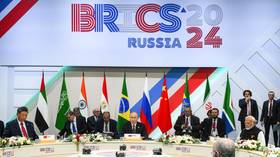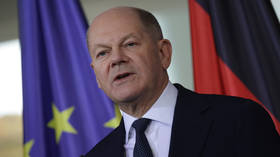U.S. and Poland sign AMD deal
Nearly 18 months of negotiations have concluded with U.S. Secretary of State Condoleezza Rice and Polish Foreign Minister Radoslaw Sikorski signing an anti-missile defence treaty in Warsaw on Wednesday. Poland has agreed
The signing ceremony was also attended by President Lech Kaczynski and Prime Minister Donald Tusk.
The deal specifies that the U.S. will install a base for 10 interceptor missiles in northern Poland, five kilometres from the Polish city of Slupsk, to protect the U.S. and Europe from possible future attacks from what it calls “rogue” states such as Iran.
The construction of the base may start this year and will be completed between 2014 and 2016.
In exchange for agreeing to take part of the system Poland will receive Patriot missiles from the U.S. to boost its own air defence.
A special American military unit will arrive in Poland to service them, and thus one more U.S. base is going to be set up there.
The Patriot air defence system is already in use in Israel, the Netherlands and Japan, but it cannot be used for shooting down ballistic missiles.
However Poland says having the missiles will mean security from a possible missile threat from outside, but not from Russia.
“These installations are not against Russia. This is not an offensive weapon, it is a defensive weapon, it is not against Russian missiles. It is against missiles coming potentially from the Middle East,” insists Pawel Zalewsky, an independent MP.
The agreement will now be taken to the Polish Parliament for ratification, and after that will be signed by President Lech Kaczynski.
Also, a U.S.-Poland military political declaration was read out, which states that the U.S. will give military help to Poland in the event of the latter being attacked by a third country.
Until recently there was opposition in Poland because of concerns it could aggravate relations with its neighbour and push the two countries further apart – but this has changed overnight.
“Unfortunately the war in Georgia has very sharply and quickly changed the mood of the Polish public opinion and in perhaps a week the majority of the Poles support the deployment of the American missile shield,” explains political analyst Grzegorz Kostrzeva-Zorbas.
Syria to offer strategic options?
On Wednesday President Assad of Syria arrives in Russia for a two-day visit. Bilateral co-operation and securing peace in the Middle East are expected to be the focus of discussions.
Meanwhile, Syria is considering deploying Russian Iskander missile defence systems on its territory, said President Bashar Assad in an interview with the Russian media before the trip, though it has yet to receive any proposals from Russia on the matter.
“Our position is that we are ready to cooperate with Russia in any project that can strengthen security. I think Russia really has to think of the response it will make when it finds itself closed in a circle,” he said.
The Syrian President has pledged support to Russia in its stance on the Georgia-South Ossetia conflict.
“On this issue we fully support Russia. The war, which was unleashed by Georgia, is the culmination of attempts to encircle and isolate Russia,” Bashar Assad said.
He also said there is a possibility that Syria might provide a base for Russia's fleet in the Mediterranean Sea, in its second largest port city, Tartus.












